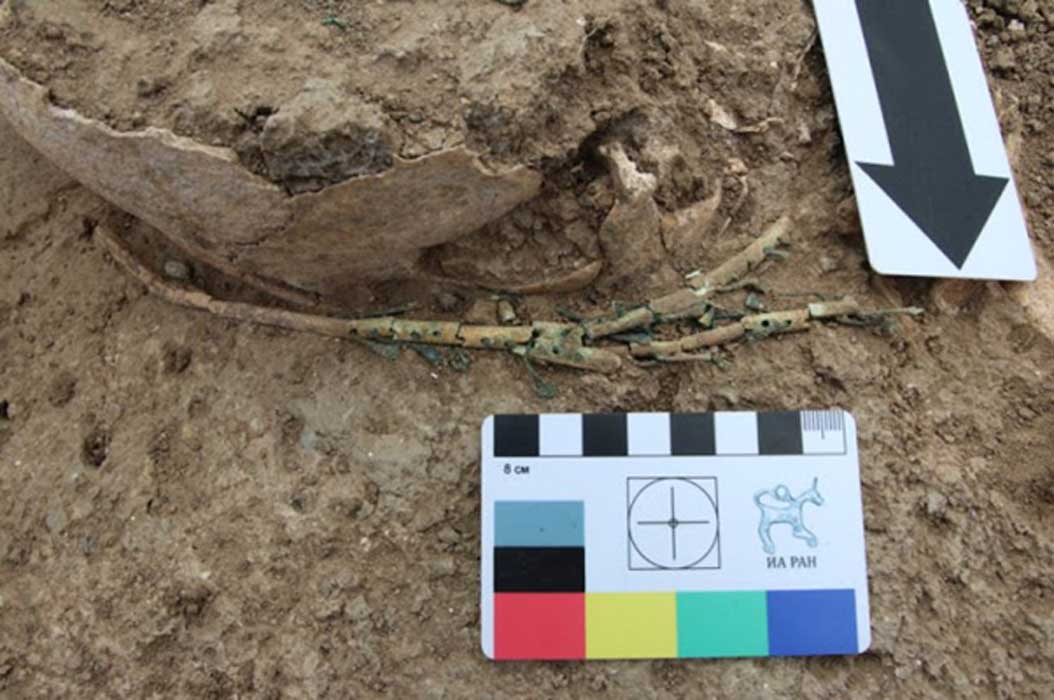Russian Archaeologists Unearth Oldest Known Fragments of Greek Musical Instruments
According to the News Agency TASS, a team of archaeologists has uncovered fragments of two ancient Greek musical instruments during an excavation in the Taman Peninsula, in southern Russia. The unearthing of remnants of musical instruments is quite rare, and the discovery is the first of its kind in many years. The discovery is an exciting one and it is showing the extent of the Greek presence in the Black Sea area in ancient times. The find will allow experts to have a better understanding of the local Greek societies.
Ancient Greeks in southern Russia
The Greeks colonized the north Black Sea area from at least the 8th century BC, drawn to the region by its rich natural resources. They established a series of colonies in the area, especially in what is now southern Russia. Over time, these became city-states or polis that became rich and powerful because of the trade in fish, grain, and slaves. The settlements remained largely Greek in culture, but they also interacted with the Steppe nomads such as the Scythians. The Taman Peninsula became the core area of the Bosporan Kingdom that endured in one form or another from the 4th century BC to the 4th century AD.
- First Corinthian Helmet North of the Black Sea Has Been Discovered in Russia
- Forgotten Voyagers: The Ancient Mexican Merchants Who Took to the Seas
- Beneath a Celestial Dome, A Land Unlike Any Other in the History of Earth. Questioning the Global Flood: Part I

Bosporan Kingdom - Panticapaeon and other ancient Greek colonies along the north coast of the Black Sea. (CC BY-SA 4.0)
The find was in an area of southern Russia, that is located near the Crimea. Two important urban centers were situated there in antiquity, which became capitals of the Bosporan Kingdom. There have been extensive archaeological finds related in the Taman area in recent decades, that have deepened our understanding of Greek society in southern Russia.

Vladimir Putin visiting the excavation site of the ancient Greek city of Phanagoria on Russia’s Taman Peninsula, 2011. (Vladimir Putin website)
Discovery of Greek instrument fragments
The find was made by archaeologists of the Russian Academy of Sciences, led by Roman Mimokhod, who have been working in the area for three years. They made the discovery of the fragments near Volna, which is located near an extensive ancient Greek settlement. The fragments were unearthed at a large necropolis and they were buried with individuals, a common practice in antiquity.

The burial in which the remains of the harp were found. Necropolis of the settlement 'Volna-1'. (Image: Institute of Archaeology, RAS)
The remains of the instruments are only the latest important discovery from the archaeological site. The team of archaeologists have excavated some 600 tombs in the necropolis and have made many discoveries that have thrown a light on Greek society in the region and the level of their interactions with local groups.
The fragments unearthed were a piece of a harp and a lyre and they have been dated to be from the 6th century BC. The instruments are only partially preserved because they were made from perishable material, namely wood. Because of this, such musical instruments are very rare to find and most of what we know about them is from images on vases.
- Earliest ancient Chinese musical instruments unearthed in tomb complex
- Ancient instrument found in Turkic warrior burial in Kazakhstan
- 5,000-year-old musical scene found on pottery in Israel may reflect sacred marriage ritual

A bone plectrum was found at the burial site. (Image: Institute of Archaeology, RAS)
The discovery of the pieces of a harp and lyre are particularly important as, Tass quotes Mimokhad as stating that, "the harp unearthed in Taman is one of the most ancient and well-preserved as far as ancient Greek musical instruments are concerned." The fragments of the instruments, according to the News Network Archaeology are believed to be older than previous significant discoveries, including those at the ‘Piraeus necropolis in Athens and the tuning pegs of a harp uncovered from a necropolis in Taranto, southern Italy."

A woman playing a harp. ca. 320–310 BC. From Anzi. (Public Domain)
Strong Greek Culture
The find of the fragments of a harp and a lyre was unexpected and demonstrates the archaeological importance of the necropolis near the Volna settlement. The musical instruments will be investigated further and compared to the few other examples from antiquity. Such discoveries in the Taman Peninsula underline how the settlements north of the Black Sea remained culturally Greek, despite their interactions with native groups.
Top image: The remains of harp found in the ancient necropolis of the Volna-1 settlement in the Temryuk district of the Krasnodar Territory. Source: Institute of Archaeology, RAS
By Ed Whelan



















